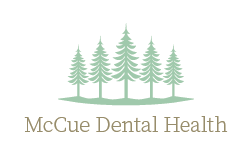TMJ & Occlusal Therapy

Treating Tooth Grinding
Those who suffer from TMJ issues often experience chronic and debilitating pain in the facial muscles, head, neck, and jaw. If you also tend to clench and grind your teeth, these issues can be increased. The jaw joint is the only joint of its kind in your body and requires special knowledge of how it works to make a plan for how to treat it. Often, issues related to TMJ stem from the joint/jaw muscles and teeth being at odds with each other when you bite down. Our Wauwatosa dentist has specific training in non invasive treatments to relieve this pain and ensure your teeth last your lifetime. Call us today by dialing (414) 456-1091.
What Causes Teeth Grinding?
Teeth grinding or clenching is an involuntary habit that usually occurs when the person is sleeping. However, it can also occur while the person is awake, especially if they are stressed or anxious.
These tend to be triggers for teeth grinding, even when it happens during a person’s sleep. Other potential causes include sleep apnea, acid reflux, a misaligned bite, growing teeth, or consuming alcohol, caffeine, or drugs.
The specific cause of teeth grinding can be different for each person but it tends to be caused by a mental state, as a side effect of medications, or because of an underlying health problem. The best way to determine the cause of your teeth grinding is to assess your stress levels, review your medical history, and try to find a pattern of when the grinding is most likely to happen.
Why Do I Need Treatment?
If you don’t treat Bruxism & TMJ, this will cause significant wear and tear on your teeth and jaw over time, resulting in pain, discomfort, and limited mobility. Teeth grinding and clenching places an incredible amount of force on your teeth.
When you chew your food, you exert around 20-40 pounds of force. However, bruxism exerts hundreds of pounds of pressure on your teeth. Over time, this can wear down your enamel, chip or crack your teeth, damage tooth restorations, and even break your teeth.
Teeth grinding is closely associated with TMJ, also known as dysfunction of the temporomandibular joint that connects your jaw to your skull. Symptoms include pain, lockjaw, difficulty opening the jaw all the way, popping or clicking noises when opening the mouth, headaches, and bite problems. Over time, the pain caused by TMJ can become more severe, as can the lack of jaw mobility and headaches.
What Are My Treatment Options for Teeth Grinding?
If you don’t treat Bruxism & TMJ, this will cause significant wear and tear on your teeth and jaw over time, resulting in pain, discomfort, and limited mobility. Teeth grinding and clenching places an incredible amount of force on your teeth.
When you chew your food, you exert around 20-40 pounds of force. However, bruxism exerts hundreds of pounds of pressure on your teeth. Over time, this can wear down your enamel, chip or crack your teeth, damage tooth restorations, and even break your teeth.
Teeth grinding is closely associated with TMJ, also known as dysfunction of the temporomandibular joint that connects your jaw to your skull. Symptoms include pain, lockjaw, difficulty opening the jaw all the way, popping or clicking noises when opening the mouth, headaches, and bite problems. Over time, the pain caused by TMJ can become more severe, as can the lack of jaw mobility and headaches.
Night Guards
A night guard will protect your teeth from damage and prevent your jaw from clenching at night. This will relieve pain caused by grinding and TMJ. The guard is made from thermal plastic and absorbs the force from clenching that could otherwise break your teeth.
The night guard is like a cushion of protection for your teeth. The lack of grinding will also reduce headaches and can help you improve mobility and pain in your jaw.
Botox
While most people are aware of the cosmetic benefits of injecting Botox into the face, not many are aware of its medical uses. When Botox is injected into specific areas of the space, such as the temples, jaw muscles, and forehead, it can prevent these muscles from contracting.
That means no more jaw clenching or grinding! Botox is a temporary procedure that paralyzes muscles, preventing them from contracting. If you have TMJ, you won’t clench your jaw at night, causing pain in your jaw and head and damaging your teeth.
Is TMJ Covered By Insurance?
TMJ is sometimes covered by dental or medical insurance, but each policy is different. Some insurance companies will not cover TMJ treatments, while others outline specific medically necessary treatments that they will cover.
Many insurance companies also require that you be officially diagnosed with TMJ before they can cover anything. Contact your insurance provider to ask them if they provide coverage for TMJ, what treatments are considered medically necessary, and if they require a diagnosis for them to cover treatment.
At McCue Dental Health, we accept Delta Dental and Cigna dental insurance. If you don’t have insurance, we also offer a 5% discount and offer membership plan that can help you save on dental costs. Contact us at McCue Dental Health today to schedule a consultation with Dr. Shaun McCue.
